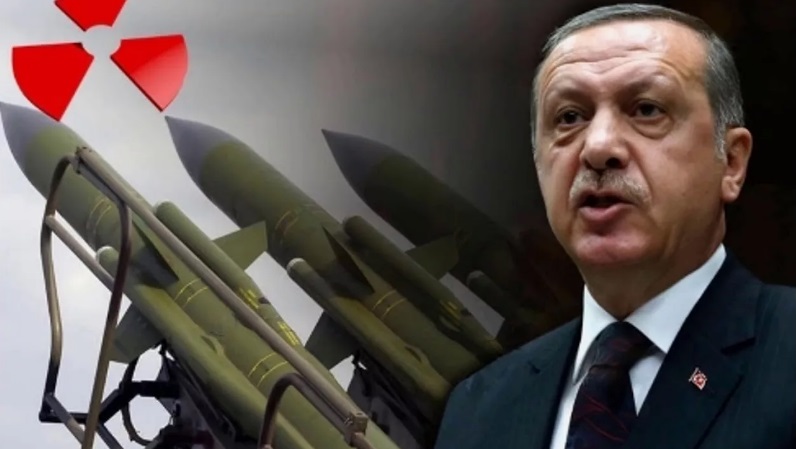 Turkish President Erdogan
Turkish President Erdogan
Photo: mds
A recent survey in Turkey reveals a significant shift in public opinion over nuclear weapons, with a majority of respondents now supporting their development in response to heightened regional tensions, particularly following Israeli strikes on Iran last month, ‘The Middle East Eye’ notes.
The poll, conducted by Research Istanbul between 1-5 July, surveyed 2,000 people nationwide.
Its findings highlight growing insecurity among Turkish citizens regarding national defence and Turkey’s ability to withstand potential threats.
Despite Turkey being a party to the Treaty on the Non-Proliferation of Nuclear Weapons (NPT) since 1979, which legally prohibits Ankara from developing, acquiring or testing nuclear weapons, 71 percent of respondents believe Turkey should start developing such arms, with only 18 percent opposed.
The recent success of Iranian ballistic missiles in penetrating Israel’s advanced air defences and causing considerable damage has further fuelled debate within Turkey over the nation’s own defensive capabilities.
Scepticism also extends to Turkey’s alliances. According to the poll, 72 percent of respondents do not believe Nato would effectively defend Turkey if it were attacked.
“These findings reflect growing public anxiety amid escalating regional conflicts in the Middle East, the Balkans and the Caucasus,” said Erdi Ozturk, a professor at London Metropolitan University.
“The pervasive sense of external threat is driving Turkish society to consider security measures that were previously taboo, including the pursuit of nuclear deterrence.”
Ozturk added that, despite longstanding political divisions, security concerns are increasingly uniting Turkish society around a common mindset.
Ankara has not yet made any statements or taken any steps indicating research into nuclear weapons.
Turkey is currently building its first nuclear power plant, Akkuyu, in partnership with Russia’s Rosatom. Estimated at costing $20bn, it will consist of four reactors with a combined capacity of 4,800 megawatts (MW), expected to provide around 10 percent of Turkey’s electricity needs when it goes into operation next year.
Ozturk further noted that widespread scepticism regarding Nato’s willingness or ability to defend Turkey is closely linked to deep-seated anti-American sentiment, which continues to be a significant factor shaping public attitudes toward security and defence policy.
read more in our Telegram-channel https://t.me/The_International_Affairs

 11:07 21.07.2025 •
11:07 21.07.2025 •






















